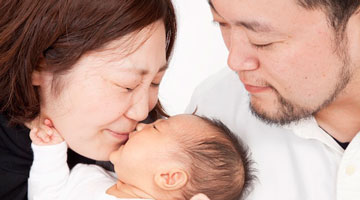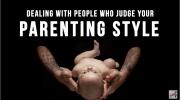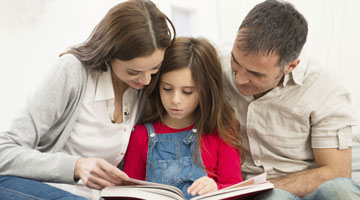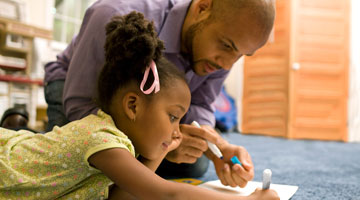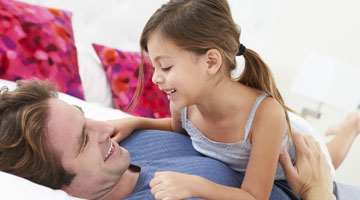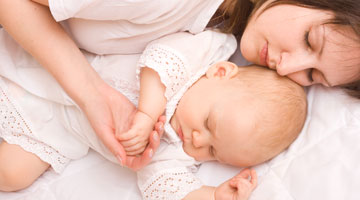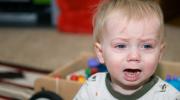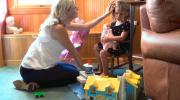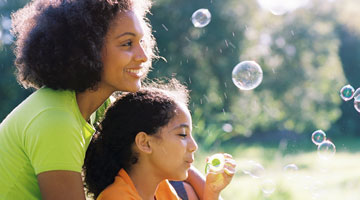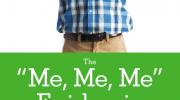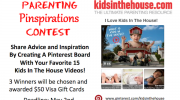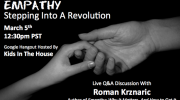characterized by reasonable demands and high responsiveness. While authoritative parents might have high expectations for their children, these parents also give their kids the resources and support they need to succeed. The authoritative parenting style is about setting limits, reasoning with kids, and being responsive to their emotional needs. This approach is common in middle class settings throughout the world, and it's linked with the most successful child outcomes. Authoritative parents are not usually as controlling as authoritarian parents, allowing the child to explore more freely, thus having them make their own decisions based upon their own reasoning. Often, authoritative parents produce children who are more independent and self-reliant.
Permissive:
Permissive parenting, also labeled as neglectful or disengaged parenting, is high on warmth, very low on discipline and structure, low in parent-to-child communication but high in child-to-parent communication, and low on expectation. Permissive parents are nurturing, warm, and accepting. Permissive parents take orders and instructions from their children, are passive, endow children with power, have low expectations, use minimal discipline, and do not feel responsible for how their children turn out.
Authoritarian:
The parent is demanding but not responsive. Authoritarian parenting is a restrictive, punishment-heavy parenting style in which parents make their children follow their directions with little to no explanation or feedback and focus on the child's and family's perception and status. Corporal punishment, such as spanking, and shouting are forms of discipline frequently preferred by authoritarian parents. The goal of this style, at least when well-intentioned, is to teach the child to behave, survive, and thrive as an adult in a harsh and unforgiving society by preparing the child for negative responses such as anger and aggression that the child will face if his/her behavior is inappropriate. In addition, advocates of this style often believe that the shock of aggression from someone from the outside world will be less for a child accustomed to enduring both acute and chronic stress imposed by parents.
Uninvolved:
Uninvolved parenting, sometimes referred to as neglectful parenting, is a style characterized by a lack of responsiveness to a child's needs. Uninvolved parents make few to no demands of their children and they are often indifferent, dismissive or even completely neglectful.
Modern Parenting Styles
Attachment parenting:
Attachment parenting is framed around psychological attachment theory. Attachment in psychology is defined as “a lasting emotional bond between people”. There are four main types of attachment: secure, insecure-avoidant, insecure-resistant, and disorganized attachment. Attachment parenting (AP) is a parenting philosophy that proposes methods which aim to promote the attachment of mother and infant not only by maximal maternal empathy and responsiveness but also by continuous bodily closeness and touch.
RIE parenting:
RIE parenting is about showing respect for a baby’s experience, such as talking to them in a clear simple way but without “baby talk.” Parents are helped to raise self-confident, self-reliant and co-operative children. RIE opposes the trend of helicopter parenting and advises "stepping back and giving your baby a chance to develop at her own pace rather than constantly bothering her with stimulating programs and educational toys". This is achieved by interpreting cries as communication, rather than alarms; by making a safe, quiet environment filled with simple toys that promote active imaginations (no mobiles or TVs); and by taking a backseat instead of steering the baby toward a certain place or goal. Objects that are considered disrespectful to a baby include sippy cups, high chairs, baby gyms, baby carriers, baby swaddles, and baby walkers, which Gerber called "a moving prison." Parents practicing RIE tell their children what they’re doing with them and why, such as asking them if they can pick them up and pausing so they can be prepared.
Dolphin Parenting:
The dolphin parent is authoritative in nature, firm yet flexible. They have rules and expectations but also value independence. They are collaborative and use guiding and role modeling to raise their kids and help them develop key 21st century skills: creativity, communication, collaboration, and critical thinking.
Positive parenting:
A parenting style overlapping substantially with authoritative parenting and defined by consistent support and guidance through developmental stages.
Free-range parenting:
Free-range parenting is the concept of raising children in the spirit of encouraging them to function independently in proper accordance of their age of development with a reasonable acceptance of realistic personal risks.
Slow parenting:
Slow parenting (also called simplicity parenting) is a parenting style in which few activities are organized for children. Instead, they are allowed to explore the world at their own pace. It is a response to concerted cultivation and the widespread trend for parents to schedule activities and classes after school; to solve problems on behalf of the children, and to buy services from commercial suppliers rather than letting nature take its course.
The philosophy, stemming at least partially from the Slow Movement, makes recommendations in play, toys, access to nature and scheduled activities. The opposing view is that such children are disadvantaged because their parents do not provide as many learning opportunities.
Instinctive parenting:
If you are following this style of parenting, then it means that you are most likely to follow your intuition or go with the attitude flow. Under this style, parents try to nurture their children in the same way as they were brought up. They try to follow the same logic and rules their parents did.
Gentle parenting:
Gentle Parenting is parenting with empathy, respect, understanding and boundaries.
American Dreamer:
American Dreamer tends to be optimistic about their children’s opportunities and schooling. Parents in this group tend to share their emotions with their children, and are likely to hope they’ll one day be “best friends” with their adult kids.
Toxic Parenting
Poor parenting, with a toxic relationship between the parent and child. It results in complete disruption of the child's ability to identify themselves and reduced self-esteem, neglecting the needs of the child. Abuse is sometimes seen in this parenting style. Adults who have suffered from toxic parents are mostly unable to recognize toxic parenting behavior in themselves. Children with toxic parents grow up with damages and pass their damages to their own children.
Helicopter Parenting:
A helicopter parent is a parent who pays extremely close attention to a child's or children's experiences and problems, particularly at educational institutions. Helicopter parents are so named because, like helicopters, they hover overhead, overseeing their child's life.
Tiger Parenting:
Tiger mother is a term which refers to a strict or demanding mother who pushes her children to be successful in education by attaining high levels of scholastic and academic achievement, using methods regarded as typical of childrearing in East Asia, South Asia and Southeast Asia to the detriment of the child's social, physical, psychological and emotional well-being. The term is coined by Yale law professor Amy Chua in her memoir Battle Hymn of the Tiger Mother.
Jellyfish Parenting:
The jellyfish parent is a permissive parent. They have little rules, expectations, and often overindulge their children. Children of jellyfish parents tend to lack impulse control.
Band-Aid parenting:
Relying on fast solutions to temporarily fix a problem, instead aiming for real, lasting change.
Buddy parenting:
Placing popularity with your child above establishing limits, boundaries or saying no
Accessory parenting:
Measuring your worth and success as a parent based on your child’s accolades.



